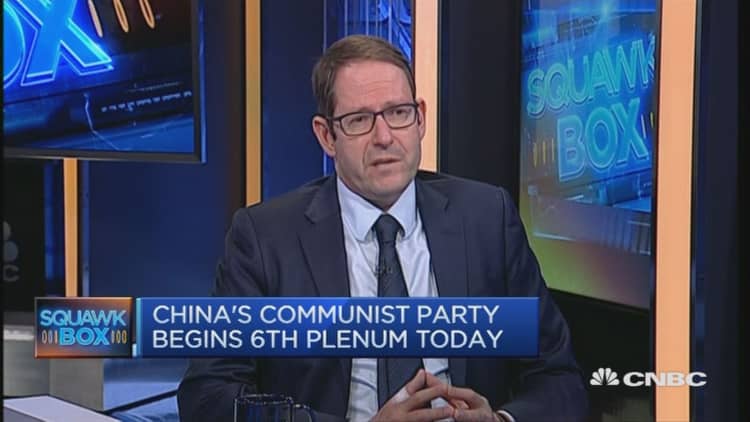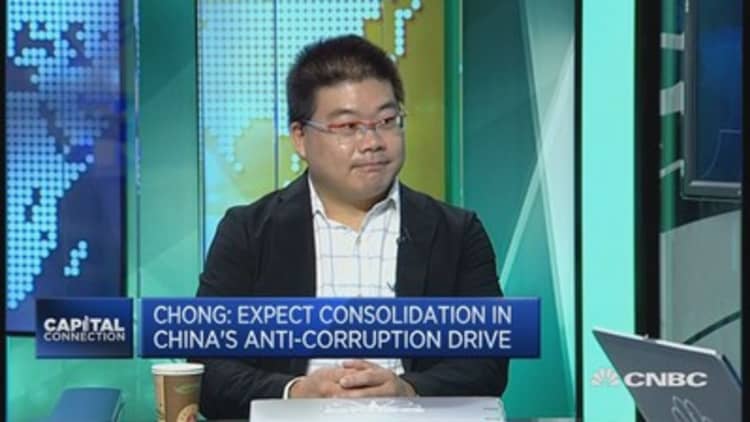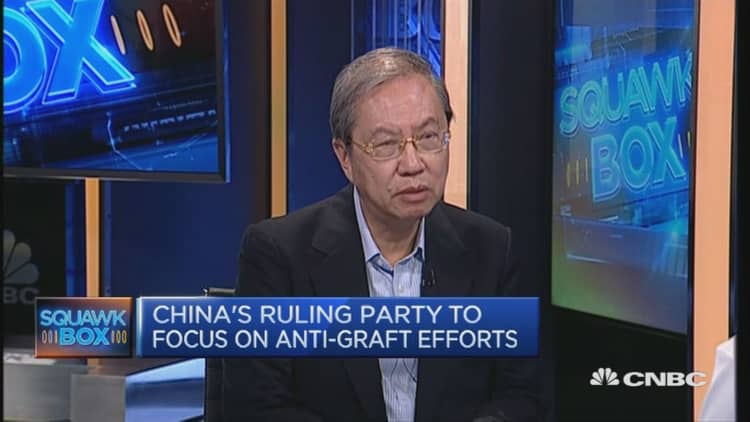

A secretive four-day meeting of hundreds of Chinese leaders is taking place in a Beijing hotel this week as president Xi Jinping sets out to consolidate power and further enforce his hard-line stance against graft.
Beyond party discipline and politics, however, international investors are more interested in how leadership changes will shape the economy in the next five years as the country transitions to a greater dependence on consumption amid concerns about debt sustainability.
"Those of us who look at markets are going to be interested to see if Xi is going to move from what is seen as his desire to centralize power to where he's going with the economy; how the economy features in his priorities over the next couple of years," said Marc Desmidt, CEO at Point72 Asset Management.
How the administration approaches the market is particularly salient after China sent markets into a tizzy last summer after the central bank announced a hefty devaluation of the currency, only to then intervene heavily to prevent the yuan from falling more.


"Markets have shown him that it's hard. You got to learn from your mistakes; markets punish mistakes," Desmidt told CNBC's "Squawk Box"
Chong Ja Ian, a political science professor at National University of Singapore said observers are watching for the political dynamics at play including movements in the management of state-owned enterprises and how the central authority deals with local government debt.
Officially, the Sixth Plenum of the current Communist Party administration will focus on party discipline.
The Chinese government has been ramping up support for its anti-graft movement in the run-up to this year's plenum, with a reality TV series debuting last week chronicling sensational lifestyles of corrupt officials who have since fallen from grace and their confessions. Highlights include dedicated servants for pets (specifically, a tortoise) and jade jewelry worth millions of dollars.
"It's been the biggest, the most comprehensive, the most far-reaching anti-corruption campaign drive we've seen in China in modern times. It's going to be more of the same; they are just going to put the foot on the accelerator more," said Geoff Raby, a former Australian ambassador to China, who is now the chairman and chief executive of his namesake Beijing-based business advisory.
Also in focus is leadership transition of Xi, who will end his first five-year term next year.
State media are already hinting at further centralization of his power, with the Communist Party's official People's Daily saying on Monday that the party needs rules that strengthen the "leadership core", Reuters reported.
Other than those already anointed by previous leaders, Xi is likely to call upon allies to fill the positions of several top leadership members set to retire last year.
"Xi will appoint close associates to the top organs of the party to strengthen his position to ensure he is not just first among equals but to ensure he is the real leader of the party," said independent political analyst, Joseph Cheng, a former political science professor at the City University of Hong Kong.
"Xi, in a way we've not seen before--certainly not since Mao Zedong--is consolidating and centralizing power and decision making," Raby told CNBC's "The Rundown".

